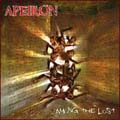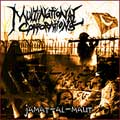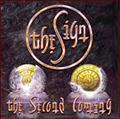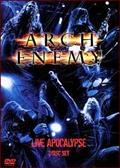ROSAE CRUCIS (it) - Worms Of The Earth (2003)
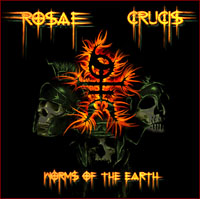
Label : Scarlet Records / Adipocere Distribution
Sortie du Scud : 10 Mars 2003
Pays : Italie
Genre : True Heavy Metal
Type : Album
Playtime : 10 titres - 55 mins
Ces dernières années, l'Italie a connu dans la foulée de Rhapsody l'émergence de nombreuses formations de Métal Symphonique. Une multitude de combo s'est essayée à ce style sans pour autant rencontrer le succès escompté.
Dès lors tout ce qui arrivait de chez nos cousins transalpins pouvait laisser présager du pire. Encore un groupe à la Rhapsody proposant un Heavy Métal Symphonico Speedo Néo Classique. Que nenni, Rosae Crucis le revendique haut et fort, ses influences sont Manowar, Running Wild, Blind Guardian, Grave Digger, Helloween et même Slayer.
Nous sommes donc en présence d'un Heavy Métal plombé, sans fioritures - pas de claviers - parsemé de nombreuses accélérations. Chaques titres de ce concept album est une ode aux légendaires anciennes batailles, de l'éternelle lutte entre le bien et le mal.
Les guerriers de Rosae Crucis ne révolutionneront pas le genre mais "Worms Of The Earth" à le mérite d'être bien fait.
Ajouté : Mardi 15 Avril 2003
Chroniqueur : Lord Natas
Score :   
Lien en relation: Rosae Crucis Website
Hits: 14208
|





